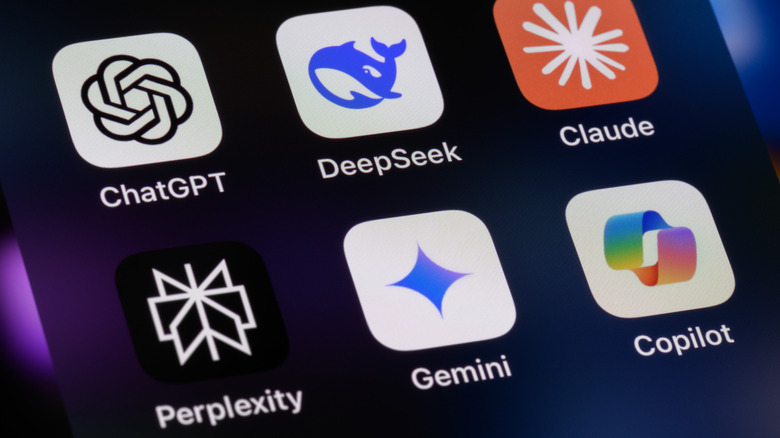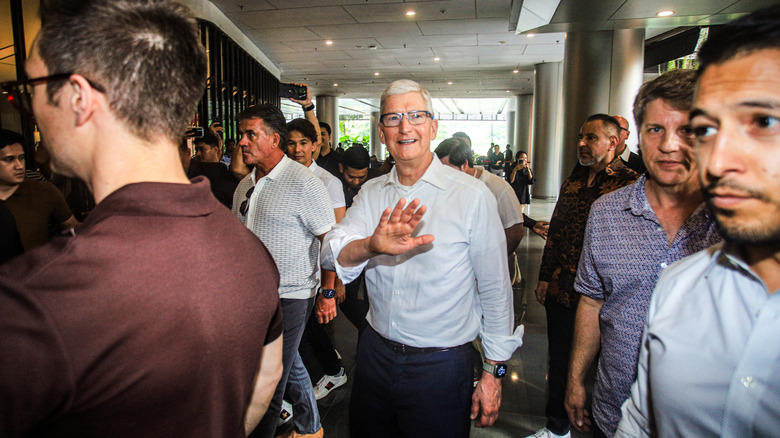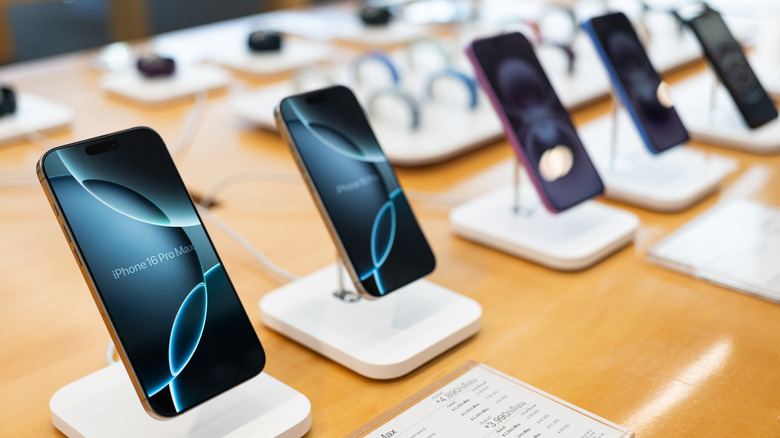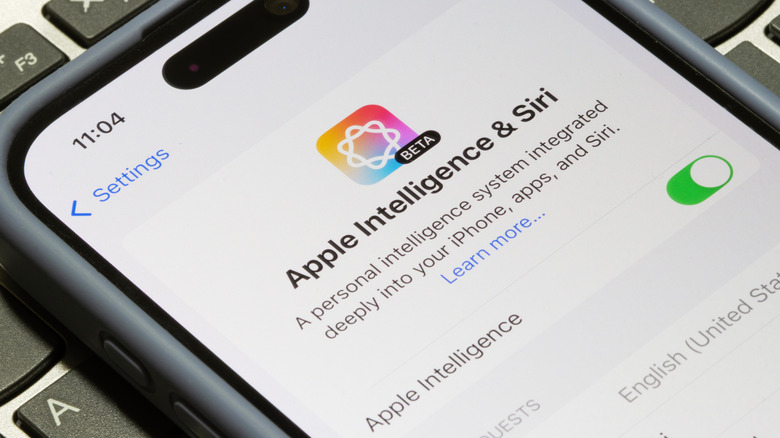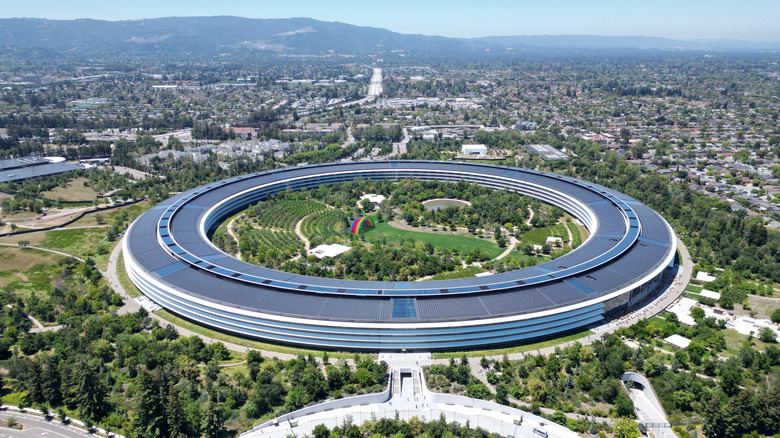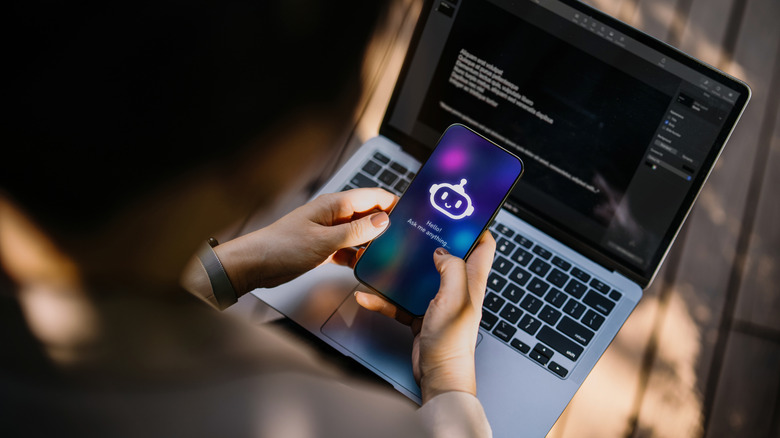Tim Cook Tells Employees That The AI Race Is Still Apple's To Lose, Despite Setbacks
It's no secret that Apple hasn't exactly been at the forefront of the AI revolution, which is somewhat unexpected given the head start it had with Siri more than a decade ago. Since then, the company has ceded ground not only to Amazon and Google, but to more recent upstarts like OpenAI and others. What's more, several of Apple's more ambitious AI initiatives with Siri have been repeatedly delayed. Ironically, Apple used to make fun of companies (read: Microsoft) that famously announced new products or features that would either never see the light of day or would be released behind schedule. With Apple Intelligence, Apple has now become everything it used to make fun of.
As a result, many critics have been quick to argue that Apple has already lost the AI battle, a view bolstered by the fact that many of Apple's most esteemed AI researchers and engineers have left the company after being offered incredibly lucrative compensation packages from companies like Meta. With the attacks against Apple's AI strategy only picking up steam, Bloomberg reports that Apple CEO Tim Cook on Friday held an internal meeting with employees where he articulated that the AI race is far from over.
Cook: Apple has been in this position before
Cook articulated that Apple is not a company that prides itself on being first, but rather on being the best.
"We've rarely been first," Cook said. "There was a PC before the Mac; there was a smartphone before the iPhone; there were many tablets before the iPad; there was an MP3 player before iPod. But Apple invented the modern versions of those product categories. This is how I feel about AI."
In each of the instances above, Apple famously went on to dominate the market. A key distinction, though, is that all of the scenarios above involve hardware as opposed to advanced software. That notwithstanding, there's no denying that Cook understands the importance of AI. To this point, Cook opined that the emergence of AI will prove to be as big and impactful as the advent of the internet. Consequently, Apple is taking AI incredibly seriously, with Cook assuring Apple employees that the AI battle has yet to be decided and can still be won by Apple.
"We will make the investment to do it," Cook said. His remarks echo statements he made during Apple's earnings conference call yesterday. When asked if Apple might make a bold AI-based acquisition, Cook said: "We're very open to [mergers and acquisitions] that accelerate our road map. We are not stuck on a certain size company, although the ones that we have acquired thus far this year are small in nature."
Perplexity AI is a potential acquisition target
To the point above, there are reports that Apple may be interested in purchasing Perplexity AI. As a quick primer, Perplexity AI is broadly similar to ChatGPT, but is closer to a search engine than it is conversational AI software. One potential hurdle, though, is that purchasing Perplexity would be incredibly expensive.
Based on recent funding, Perplexity AI is currently valued at a whopping $18 billion. Apple historically tends to shy away from incredibly expensive acquisitions, with the most expensive acquisition in Apple's history being its $3 billion purchase of Beats back in 2014.
Incidentally, Apple and Perplexity have already started discussing what an acquisition might look like, though it remains unclear if those discussions have moved beyond the preliminary stages. It is worth mentioning that Apple sometimes engages in acquisition talks with companies that ultimately go nowhere, which is to say acquiring Perplexity is by no means a sure thing.
Why is Siri behind?
Alongside Cook, Apple Senior VP of Software Engineering Craig Federighi shed some light on some of the hiccups we've seen with Siri and Apple Intelligence. According to Federighi, the problem stems from Apple being a bit too ambitious insofar as the company tried to merge two very different versions of Siri together. Federighi explained that the first version is responsible for basic and somewhat unsophisticated queries, like asking what the weather is or what year a celebrity was born. The second version is based on large language models, the technology that powers software like ChatGPT.
"We initially wanted to do a hybrid architecture, but we realized that approach wasn't going to get us to Apple quality."
Other reports over the past year have suggested that Apple's AI efforts were hampered by its focus on user privacy to the detriment of bold and ambitious ideas. In recent months, though, sources from within Apple have relayed that the company is trying to think bigger about AI and focus on more compelling features.
Apple keeps losing top talent
As referenced above, another problem is that some of Apple's top AI talent has left the company in recent months. For example, Ruoming Pang helped develop the foundation models behind Apple Intelligence while also leading the company's Foundational Model team. Just this month, Pang left to join Meta as an AI Research Scientist after being offered a pay package in the range of $200 million. Compounding matters is that several of the top folks on Pang's team also went with him, including Tom Gunter, Mark Lee, and Bowen Zhang.
As an aside, it's well known that Meta has been offering top AI engineers across Silicon Valley huge sums of money to lure them away from their current positions. In some rare instances, Meta has even offered select AI engineers upwards of $1 billion in compensation over the course of a long-term contract.
The problem for Apple here is two-fold. In addition to losing some of its brightest engineers, the loss of high-profile talent may make working at Apple less appealing to AI engineers deciding where to work. If you're an engineer looking to do cutting edge research, it stands to reason you might be more intrigued by the work being done at Meta, Google, or OpenAI. Top talent often attracts top talent, and Apple arguably needs to do a better job of retaining its best employees.
Apple's AI future
It's truly hard to predict how Apple's role in the AI revolution will unfold. The company clearly has more money and resources than it knows what to do with, and yet it still found itself caught off-guard by the latest AI advancements. The good news, I suppose, is that Apple at the very least seems to truly recognize how far behind it is at the moment. Whether or not that translates to compelling improvements in Apple Intelligence remains to be seen.
Ultimately, the fact that Cook even had this internal meeting in the first place suggests that Apple's AI focus is picking up steam. The meeting was clearly Cook's attempt to reassure employees that Apple will spare no effort to become more of an influential player in the increasingly competitive AI space. Going forward, it will be fascinating to see how this plays out, especially because Apple won't be able to leverage its hardware expertise to the same extent it did when it entered the MP3 player and smartphone markets many years ago.
